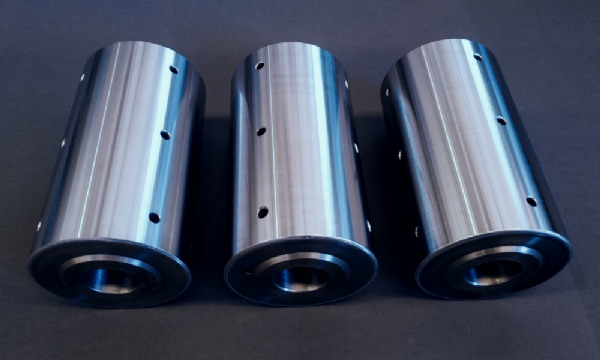Indian scientists develop safe and effective coating technique that can replace toxic chrome plating
A team of Indian scientists have developed a new method of depositing nickel alloy coatings on high-performance materials in engineering applications, which can replace the use of environmentally toxic chrome coatings.
Total Views |
A team of Indian scientists have developed a new method of depositing nickel alloy coatings on high-performance materials in engineering applications, which can replace the use of environmentally toxic chrome coatings.
Chrome coatings have been used in the plastic bottling industry to improve the service life of die-casting components, but the process of chrome plating is toxic and must comply with stringent standards for permissible exposure limits for hexavalent chromium.'
Chrome coatings have been used in the plastic bottling industry to improve the service life of die-casting components, but the process of chrome plating is toxic and must comply with stringent standards for permissible exposure limits for hexavalent chromium.'

The new method, developed by the research group led by Dr Nitin P Wasekar at the Centre for Engineered Coatings at the International Advanced Research Centre for Powder Metallurgy and New Materials (ARCI), uses a lab-scale process that employs pulsed current electroplating, which is environmentally friendly and has a high production capacity.
ARCI is an autonomous research and development centre of the Central government's Department of Science and Technology (DST).
The process consists of an environment-friendly electrolyte made up of nickel and tungsten ions that serves as the source of strengthening elemental tungsten (W) and nickel (Ni), the Ministry of Science and Technology said on Wednesday.
New technique of corrosion-resistant nickel alloy coatings can replace toxic chrome plating
— PIB India (@PIB_India) January 10, 2023
The coatings obtained are also highly corrosion-resistant and useful for the plastic ware industry.
Read more: https://t.co/Hk2D2rTxur pic.twitter.com/LdgNxpscYs
The pulsed current is applied between the components to be coated, which act as the cathode and non-consumable anode. The pulsed current effect was used to create nano-crystalline coatings, where high instantaneous current density for a short duration results in a high rate of nucleation.
Unlike in conventional direct current plating, the coatings produced were virtually porosity-free, crack-free, and had minimal hydrogen uptake.
The use of pulsed current also resulted in the nano-crystallisation of nickel tungsten alloy coatings with high hardness (700-1200 HV) and wear resistance. The coatings were also extremely corrosion-resistant and could withstand up to 700 hours of salt spray.
The coatings developed at ARCI can withstand temperatures of up to 500 degrees celsius without thermal softening and can improve the life of die components by at least two times than conventional chrome plating.
They were successfully applied to die-casting components used in the plastic bottling industry, where the temperatures at the die interface can be over 280 degrees celsius. With numerous applications in automotive, defense, and aerospace, the process know-how is ready for transfer as a replacement for conventional chrome plating.

